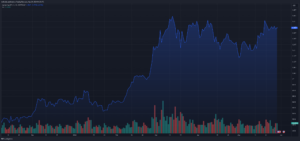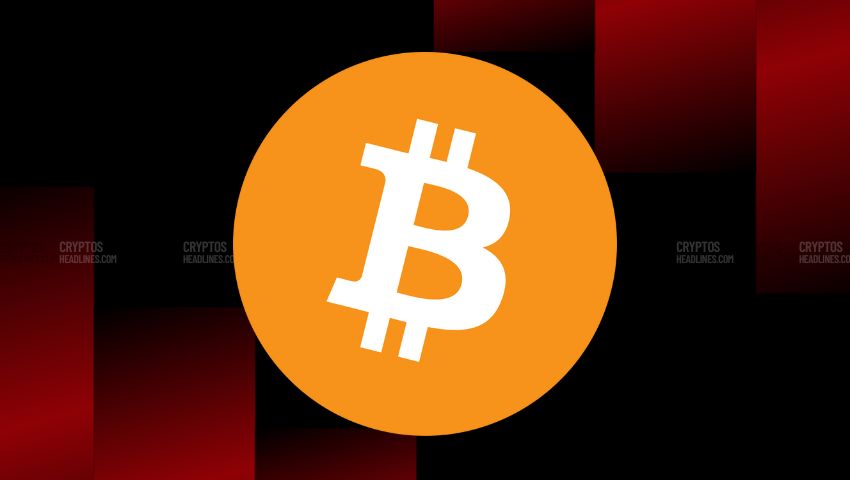Argentina’s relationship with Bitcoin has hit a rough patch. Recent talks with El Salvador, the first country to adopt Bitcoin, sparked rumors that Argentina might do the same.
However, experts are urging caution, highlighting the difference between friendly discussions and full adoption of Bitcoin. The election of Bitcoin supporter Javier Milei as president in late 2023 caused concern in Argentina’s cautious financial sector, leading to predictions of a major shift towards Bitcoin. While the government has allowed Bitcoin payments in certain contracts, these small steps fall short of fully embracing the digital currency.
Media Speculation vs. Reality: Argentina’s Caution on Bitcoin
When Argentina and El Salvador recently engaged in talks, speculation ran wild about Argentina potentially joining the ranks of Bitcoin-friendly nations. Images of financial regulators shaking hands fueled rumors of imminent crypto adoption.
However, the reality was far less sensational. The National Bitcoin Office of El Salvador quickly clarified that the talks were routine discussions on digital asset regulations, not a signal of Argentina embracing Bitcoin.
Stacy Herbert, Director of El Salvador’s National Bitcoin Office, attributed the media frenzy to the concept of “hyperbitcoinization.” She pointed out that headlines often exaggerate without capturing the complexities involved in adopting cryptocurrency as legal tender, particularly for a major economy like Argentina’s.
Argentina faces significant economic challenges, including soaring national debt, which complicate any move towards fully embracing digital currencies. This cautious approach contrasts sharply with El Salvador’s bold adoption of Bitcoin, highlighting the nuanced paths countries navigate in the evolving landscape of digital finance.
Potential Collaboration on Cryptocurrency Regulations: A Silver Lining
Despite the tempered expectations surrounding Bitcoin adoption in Argentina, recent discussions between Argentina and El Salvador hold promise for broader implications in the realm of cryptocurrency regulations.
The ongoing dialogues between the two nations present an opportunity to establish collaborative efforts aimed at harmonizing regulatory frameworks for digital assets. Such collaboration could lead to a more unified approach across borders, addressing inconsistencies and preventing regulatory arbitrage. This is crucial as it prevents companies from exploiting regulatory gaps between different countries to their advantage.
By aligning their regulatory approaches, Argentina and El Salvador could create a conducive environment for innovation and investment in the digital asset landscape. This cooperative effort may also enhance transparency and stability within their respective financial systems, fostering greater confidence among investors and businesses operating in the cryptocurrency sector.
While challenges and complexities undoubtedly lie ahead, the potential benefits of coordinated cryptocurrency regulations between Argentina and El Salvador highlight a silver lining amidst the uncertainties surrounding Bitcoin adoption and regulatory frameworks globally.

BTC market cap currently at $1.35 trillion. Chart: TradingView.com
Lessons from El Salvador’s Bitcoin Adoption
El Salvador’s experience with Bitcoin provides critical insights for Argentina as it navigates its own crypto journey. Despite initial positive indicators, such as a $72 million profit from BTC holdings, the practical outcomes paint a less optimistic picture.
Adoption rates of Bitcoin as legal tender in El Salvador have remained persistently low, with estimates suggesting that fewer than 2% of Salvadorans actively utilize the cryptocurrency. This discrepancy raises significant doubts about the long-term feasibility of integrating crypto into everyday transactions in a country where traditional financial systems are deeply entrenched and widely utilized.
In Argentina, while President Milei’s supportive stance towards cryptocurrencies initially sparked enthusiasm, the nation’s economic realities and the intricate challenges of adoption necessitate a cautious and methodical approach. Unlike El Salvador, where official adoption of Bitcoin was swift but faced hurdles in public acceptance and practical implementation, Argentina’s path towards crypto integration appears poised for a slower and more deliberative trajectory.
The complexities involved, including regulatory frameworks, public acceptance, and the coexistence with existing financial infrastructures, underscore the need for Argentina to proceed with careful consideration and adaptability. These lessons from El Salvador emphasize the importance of balancing enthusiasm with practicality in the journey towards broader cryptocurrency adoption.
Important: Please note that this article is only meant to provide information and should not be taken as legal, tax, investment, financial, or any other type of advice.
Join Cryptos Headlines Community
Follow Cryptos Headlines on Google News











